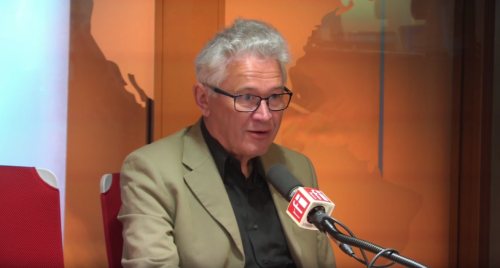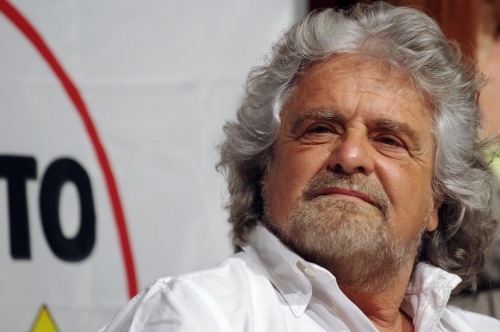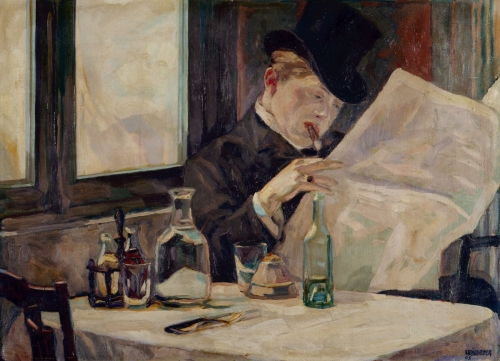
Presseschau
Juni 2018
AUßENPOLITISCHES
Größte Summe seit Kaltem Krieg
Staaten investieren massiv in Aufrüstung
https://www.t-online.de/nachrichten/ausland/international...
Warum wir alles verlieren werden – Banken-Insider verrät die Gründe // Mission Money
https://www.youtube.com/watch?v=zXPEPzg3eSg&feature=y...
„Epochale Krise ungefähr 2020“ (JF-TV-Interview mit Markus Krall)
https://www.youtube.com/watch?v=GjofVO7aqK8
EU-Haushalt
Die Spaltung vertiefen
von Andreas Unterberger
https://jungefreiheit.de/debatte/kommentar/2018/die-spalt...
Bundesregierung will neue Prozenthürde bei EU-Wahl
https://jungefreiheit.de/politik/deutschland/2018/bundesr...
Italien: Angstregierung für Berlin und Brüssel wird Wirklichkeit
https://www.heise.de/tp/features/Italien-Angstregierung-f...
Europa in der Krise
Der sechste Schlag gegen die Fundamente der EU könnte tödlich sein
https://www.welt.de/debatte/kommentare/article176357927/E...
Gegen Italiens Erpressermethode ist Europa machtlos
https://www.welt.de/wirtschaft/article176360010/Italien-N...
250 Milliarden Euro
Italien schockiert mit Forderung nach Schuldenerlass
https://www.welt.de/finanzen/geldanlage/article176416762/...
Italien läutet das Ende des Euro ein
http://www.manager-magazin.de/politik/weltwirtschaft/ital...
Massive Steuersenkungen, verkappte Parallelwährung
Unbezahlbarer Wunschzettel: Italien kann uns in die nächste Euro-Krise stürzen
https://www.focus.de/finanzen/boerse/unbezahlbarer-wunsch...
Staatspräsident verhindert neue Regierung
Mattarella stürzt Italien ins Chaos
von Marco F. Gallina
https://jungefreiheit.de/allgemein/2018/mattarella-stuerz...
Spanien
Separatistengruppe ETA gibt Auflösung bekannt
https://jungefreiheit.de/politik/ausland/2018/separatiste...
Täter war Tschetschene
IS bekennt sich zu Terroranschlag in Paris
https://jungefreiheit.de/politik/ausland/2018/is-bekennt-...
Islamischer Terror
Die Gebete sind verstummt
https://jungefreiheit.de/debatte/kommentar/2018/die-gebet...
(Stimmungsbild in Irland und Großbritannien)
Sonntagsheld (62) – #FreeTommy!
https://sezession.de/58593/sonntagsheld-62-freetommy
Gekündigtes Iran-Abkommen
Ein unerträglicher Affront
von Bruno Bandulet
https://jungefreiheit.de/debatte/kommentar/2018/ein-unert...
Hyperinflation in Venezuela
Sozialismus ohne Bargeld
http://www.spiegel.de/wirtschaft/soziales/venezuela-und-d...
Tourismus-Werbung
Entwicklungshilfeempfänger Ruanda sponsert FC Arsenal
https://jungefreiheit.de/politik/ausland/2018/entwicklung...
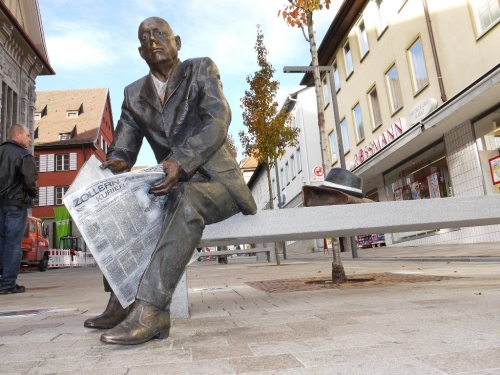
INNENPOLITISCHES / GESELLSCHAFT / VERGANGENHEITSPOLITIK
Betriebsrenten
Jede dritte Pensionskasse in Schwierigkeiten
https://www.stuttgarter-nachrichten.de/inhalt.betriebsren...
Kriminalität
Das Dunkelfeld expandiert
von Michael Paulwitz
https://jungefreiheit.de/debatte/kommentar/2018/das-dunke...
Bundeswehr
Zeitgeistselige Mätzchen
von Matthias Bäkermann
https://jungefreiheit.de/debatte/kommentar/2018/zeitgeist...
„Neues Hambacher Fest“
Wo die schweigende Mehrheit „Bravo“ in die Menge brüllt
https://www.welt.de/politik/deutschland/article176099912/...
Spenden von Daimler: AfD und Linke gehen leer aus
https://jungefreiheit.de/politik/deutschland/2018/spenden...
Schleswig-Holstein
Kommunalwahl: Starke Verluste für SPD und CDU
https://jungefreiheit.de/politik/deutschland/2018/kommuna...
Gesetzesentwurf
Sachsens Grüne fordern Wahlrecht für Nicht-EU-Ausländer
https://jungefreiheit.de/politik/deutschland/2018/sachsen...
(Wichtigtuerei bzw. der nächste Sturm im Wasserglas)
Gerechtigkeit
"Das ist übelster Alltagsrassismus": FDP-Mitglied tritt nach Lindners Parteitag-Rede aus
http://www.bento.de/politik/christian-lindner-und-der-all...
Wegen CSU-Attacke gegen AfD
Steinbach gibt Bayerischen Verdienstorden zurück
https://jungefreiheit.de/politik/deutschland/2018/steinba...
(Zur Rede von Alice Weidel im Bundestag)
Das Knirschen wird lauter
von Jörg Kürschner
https://jungefreiheit.de/debatte/kommentar/2018/das-knirs...
AfD-Großdemonstration in Berlin
Tausende fordern: Merkel muß weg!
https://jungefreiheit.de/politik/deutschland/2018/tausend...
Tausende gegen AfD-Demonstration - mit Techno und auf Booten
https://www.gmx.net/magazine/politik/tausende-afd-demonst...
(Bizarre Wirklichkeitsverdrehung)
Interview
CDU-Generalsekretärin nennt AfD „Bedrohung für jüdisches Leben“
https://jungefreiheit.de/politik/deutschland/2018/cdu-gen...
Ruhrgebiet
Erhöhte Sicherheitsauflagen: Fronleichnamsprozession abgesagt
https://jungefreiheit.de/kultur/gesellschaft/2018/erhoeht...
„Lampe des Friedens“ für Angela Merkel
Im Elfenbeinturm brennt noch Licht
von Boris T. Kaiser
https://jungefreiheit.de/debatte/kommentar/2018/im-elfenb...
Der Vater des Wirtschaftswunders im Mittelpunkt
Mit viel politischer Prominenz wurde das Ludwig-Erhard-Zentrum in Fürth offiziell eingeweiht. Das Ausstellungs-, Begegnungs- und Forschungszentrum steht in der Tradition des ersten Bundeswirtschaftsministers und Vaters der Sozialen Marktwirtschaft.
https://www.bayernkurier.de/inland/33092-der-vater-des-wi...
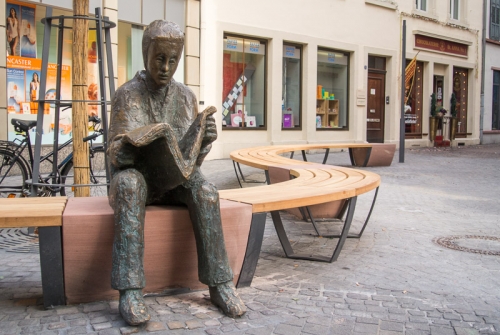
LINKE / KAMPF GEGEN RECHTS / ANTIFASCHISMUS / RECHTE
Neue Rechte: Bis in den letzten, rechten Winkel
Die AfD steht im Zentrum eines Netzwerks neurechter Denkfabriken, Medien und Spender. Sie alle kämpfen gegen die offene Gesellschaft. Eine Deutschlandkarte
https://www.zeit.de/politik/deutschland/2018-05/neue-rech...
(Subtile Medien-Konditionierung mit negativen Klischeebildern)
"Kampf gegen Rechts" im Öffentlich-Rechtlichen
Plumpe ARD-Propaganda: „Betreuter Tatort“ mit Öko-Nazis
http://www.pi-news.net/2018/05/plumpe-ard-propaganda-betr...
(Ulla Jelpke verteidigt mal wieder ihre Schützlinge…)
Bei staatlicher Förderung
Verfassungsschutz überprüft Anti-Rechts-Projekte
https://jungefreiheit.de/politik/deutschland/2018/verfass...
Legale Waffen
Grüne fordern Entwaffnung von Rechtsextremen
https://jungefreiheit.de/politik/deutschland/2018/gruene-...
Robert Habeck
„Es gibt kein Volk“: AfD empört über Äußerung von Grünen-Chef
https://jungefreiheit.de/politik/deutschland/2018/es-gibt...
Grünen-Chef Habeck und das Volk
Zorniger Ausdruck staatsbürgerlicher Emanzipation
von Thorsten Hinz
https://jungefreiheit.de/debatte/kommentar/2018/zorniger-...
Explosion bei Bombenentschärfung
Ditfurth sorgt mit Haß-Tweet gegen Dresden für Empörung
https://jungefreiheit.de/politik/deutschland/2018/ditfurt...
„Wir können nicht alle bei uns aufnehmen“
Streit um Flüchtlingspolitik: Juso-Chef kritsiert Nahles
https://jungefreiheit.de/politik/deutschland/2018/streit-...
(Zu Identitären)
Klimawandel auf der Straße
Die APO ist jetzt rechts
von Kurt Zach
https://jungefreiheit.de/politik/deutschland/2018/die-apo...
Bonn
Identitäre Aktivistin aus Uni Veranstaltung geworfen #speakup
https://www.youtube.com/watch?v=6SyO0tgN_ZQ
„Aufruf zur Denunziation“
Lehrerverband kritisiert geplante Meldeplattform für Anti-AfD-Äußerungen
https://jungefreiheit.de/politik/deutschland/2018/lehrerv...
AfD-Chef beleidigt und bedrängt
Verrohtes Land
von Michael Paulwitz
https://jungefreiheit.de/debatte/kommentar/2018/verrohtes...
Pokal-Party in Frankfurt: AfD-Vorsitzender Gauland „erfolgreich aus Altstadt vertrieben“
http://www.faz.net/aktuell/rhein-main/afd-vorsitzender-ga...
Grüne Menschenjagd in Deutschland
Von Vera Lengsfeld
https://vera-lengsfeld.de/2018/05/27/gruene-menschenjagd-...
("Autonome" Zentren)
AfD-Anfrage
Schaltstellen der linksextremen Szene
https://jungefreiheit.de/politik/deutschland/2018/schalts...
Linksextremismus
„Rote Flora“: SPD und Grüne verteidigen Kuschelkurs
https://jungefreiheit.de/politik/deutschland/2018/rote-fl...
Linksradikalismus
Immer mehr unangemeldete Demonstrationen in Berlin
https://jungefreiheit.de/politik/2018/immer-mehr-unangeme...
("Antirassistische" Grabenkämpfe in der Linkspartei)
Oskar Lafontaine: „Man kann nicht Parteifreunde als AfD-nah beschimpfen“
https://www.welt.de/politik/deutschland/article176479885/...
(Freie, offene Gesellschaft…)
Wegen AStA-Beschwerde
Uni Köln verbietet Bauarbeitern „Thor Steinar“-Kleidung
https://jungefreiheit.de/politik/deutschland/2018/uni-koe...
Essen - 1.Mail-Demo -Verhaftung von Guido Reil
https://www.youtube.com/watch?v=_I7G2e6PAO0
Lehrer wegen umstrittener Internetvideos fristlos gekündigt
https://www.gmx.net/magazine/panorama/lehrer-umstrittener...
Österreich
Anklage gegen zehn führende Vertreter der „Identitären“
https://jungefreiheit.de/politik/ausland/2018/anklage-geg...
(Unterstützerseite fordert Freiheit für die inhaftierte Ursula Haverbeck)
https://freiheit-fuer-ursula.de/wir-fordern-freiheit/
Martin Sellner
Wie man uns ruinieren will & das "Robin Hood Prinzip"
https://www.youtube.com/watch?v=9oIvFtLSBVU
Linke Gewalt
Vermummte bedrohen Familie eines Polizisten
https://jungefreiheit.de/politik/deutschland/2018/vermumm...
Berlin
AfD-Kundgebung: Polizei erwartet gewaltbereite Gegendemonstranten
https://jungefreiheit.de/politik/deutschland/2018/afd-kun...
(Zur Berliner AfD-Kundgebung)
Linker Haß und bunter Wahnsinn (JF-TV Reportage)
https://www.youtube.com/watch?v=mA8AjAbZSmg
Twitter-Stellungnahme
Berliner AfD erwägt rechtliche Schritte gegen Bürgermeister Müller
https://jungefreiheit.de/politik/deutschland/2018/berline...
Bundesparteitag in Augsburg
Mit Brandsätzen und Nagelbrettern gegen die AfD
https://jungefreiheit.de/politik/deutschland/2018/mit-bra...
Thüringer Bundestagsabgeordneter
Lockere Radmuttern: Polizei prüft möglichen Anschlag auf AfD-Politiker
https://jungefreiheit.de/politik/deutschland/2018/lockere...
Grünen-Politiker ruft nach Verfassungsschutz gegen PI News
https://jungefreiheit.de/politik/deutschland/2018/gruenen...
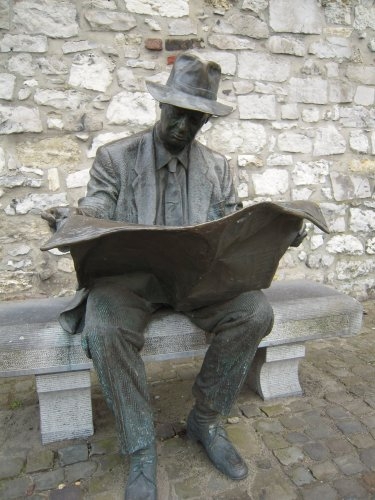
EINWANDERUNG / MULTIKULTURELLE GESELLSCHAFT
Grenzöffnung
Pech für uns
von Thorsten Hinz
https://jungefreiheit.de/debatte/kommentar/2018/pech-fuer...
New Yorker Erklärung: Unbegrenzte Zuwanderung wird verankert
https://www.journalistenwatch.com/2018/05/22/new-yorker-e...
Migration und UNO Agenda
Martina Böswald AfD "Meine Damen und Herren kämpfen sie gegen diesen Globalen Pakt"
https://www.youtube.com/watch?v=iYdJwQjuQds
Wofür stehen Gündogan und Özil?
http://www.faz.net/aktuell/sport/fussball-wm/deutsches-te...
Weidel: Gündogan und Özil sollen für Türkei spielen
https://jungefreiheit.de/politik/deutschland/2018/weidel-...
(Zu Gündogan und Özil…)
Treffen mit Erdogan
Vom Mißbrauch befreit
von Thorsten Hinz
https://jungefreiheit.de/debatte/kommentar/2018/vom-missb...
Debatte um Özil und Gündogan : Höflich zu Erdogan
http://www.faz.net/aktuell/politik/berthold-kohler-zu-oez...
Nationalspieler huldigt Gemälde von Mehmet II. in seiner Londoner Villa
Özil verehrt Christenschlächter und brutalen Eroberer Konstantinopels
http://www.pi-news.net/2018/05/oezil-verehrt-christenschl...
(SPD-Stadtrat…)
Stadtrat beleidigt Mesut Özil und Ilkay Gündogan heftig - und entschuldigt sich
https://www.gmx.net/magazine/politik/stadtrat-beleidigt-o...
Islam-Schwärmerei
Ramadan-Mania
https://jungefreiheit.de/debatte/kommentar/2018/ramadan-m...
(Verbreitung von Geschichtsmythen ohne Nachweis…)
Beginn des Fastenmonats Ramadan – ein alter deutscher Brauch
Von Eren Güvercin
http://www.deutschlandfunkkultur.de/beginn-des-fastenmona...
Erlaß der Staatsregierung
Thüringen: Ausländische Opfer rechter Gewalt erhalten Bleiberecht
https://jungefreiheit.de/politik/deutschland/2018/thuerin...
Bayern
Geplante Abschiebung scheitert am Mutterschutz
https://jungefreiheit.de/politik/deutschland/2018/geplant...
Flüchtlingskrise: Bund gibt fast 21 Milliarden Euro aus
https://jungefreiheit.de/politik/deutschland/2018/fluecht...
Kosten für Flüchtlinge
Hamburg gibt 800 Millionen Euro für Asylbewerber aus
https://jungefreiheit.de/politik/deutschland/2018/hamburg...
Niedersachsen
Tatverdächtiger Guineer: 120.000 Euro Kosten für Unterbringung
https://jungefreiheit.de/politik/deutschland/2018/tatverd...
100 Euro für „Fünf-Minuten-Attest“
Asylskandal: Ärzte, Dolmetscher und Vermittler geraten ins Visier
https://jungefreiheit.de/politik/deutschland/2018/asylska...
Chefsache Flüchtlingspolitik
Der Bamf-Skandal ist auch Merkels Skandal
https://www.n-tv.de/politik/politik_kommentare/Der-Bamf-S...
Asyl
Linke gegen Untersuchungsausschuß zum BAMF-Skandal
https://jungefreiheit.de/politik/deutschland/2018/linke-g...
Asyl-Mißbrauch
Der Merkel-Skandal
von Michael Paulwitz
https://jungefreiheit.de/debatte/kommentar/2018/der-merke...
Nigerianer
Berliner Ausländerbehörde soll jahrelangen Asylbetrug zugelassen haben
https://jungefreiheit.de/politik/deutschland/2018/berline...
Ellwangen
Afrikaner-Mob verhindert Abschiebung
https://jungefreiheit.de/politik/deutschland/2018/afrikan...
Ellwangen
Polizei fasst gesuchten Togoer – Flüchtlinge springen aus dem Fenster
https://www.welt.de/politik/deutschland/article176012361/...
Ellwangen: Eine katastrophale Kapitulation des Rechtsstaats
https://philosophia-perennis.com/2018/05/02/ellwangen-rec...
Ellwangen und der staatlich gewollte Rechtsbruch…
https://www.godmode-trader.de/artikel/ellwangen-und-der-s...
Asylbewerber-Randale in Ellwangen
Weidel: Wer Polizisten angreift, hat sein Gastrecht verwirkt
https://jungefreiheit.de/politik/deutschland/2018/weidel-...
Bundespolizei muss Togoer aus Ellwangen wieder einreisen lassen
https://www.gmx.net/magazine/politik/bundespolizei-togoer...
Togoer von Ellwangen
Der Staat gerät zur Lachnummer
https://jungefreiheit.de/debatte/kommentar/2018/der-staat...
Nach gescheiterter Verfassungsbeschwerde
Togolese von Ellwangen abgeschoben
https://jungefreiheit.de/politik/deutschland/2018/togoles...
https://www.welt.de/politik/deutschland/article176366280/...
Donauwörth
30 Festnahmen nach Großeinsatz in Donauwörth
https://www.augsburger-allgemeine.de/donauwoerth/Widersta...
Erstes Quartal 2018
Fast jede zweite Abschiebung wird abgebrochen
https://jungefreiheit.de/politik/deutschland/2018/fast-je...
Ungewöhnlicher Polizeieinsatz
Zwölf Schafe im Volkspark Friedrichshain gegrillt
https://www.bz-berlin.de/berlin/friedrichshain-kreuzberg/...
Jüterbog
Bürgermeister sammelt Spenden für Opfer von nacktem Asylbewerber
https://jungefreiheit.de/politik/deutschland/2018/buerger...
Sachbeschädigung
Wollte der Kirchen-Randalierer von Bamberg Antiquitäten zu Geld machen?
Die Bamberger Staatsanwaltschaft sieht einen möglichen Zusammenhang zwischen der Sachbeschädigung in Kirchen und Diebstählen.
https://www.infranken.de/regional/bamberg/wollte-der-kirc...
Hamburg
Nordafrikaner überfallen Frau mit Kinderwagen
https://jungefreiheit.de/politik/deutschland/2018/nordafr...
Dresden und Rathenow: Straßenkämpfe zwischen Einheimischen und Flüchtlingen + Videos
Heftige Szenen zeigen Videofilme aus Dresden und Rathenow, die an Christi Himmelfahrt aufgenommen wurden. Sind hier Ausnahme-Szenen zu sehen oder wird eine neue Realität in Deutschland zum Normalfall?
https://www.epochtimes.de/politik/deutschland/dresden-und...
Streit auf Luisenplatz eskaliert
Schlägerei und Messerstiche in Darmstadt - mehrere Verletzte
https://www.hessenschau.de/panorama/schlaegerei-und-messe...
Sachsen
Flüchtlings-Mob greift Polizisten in Asylunterkunft an
https://jungefreiheit.de/kultur/gesellschaft/2018/fluecht...
Berlin
Vorbestrafter, illegaler Asylbewerber soll Rentnerin getötet haben
https://jungefreiheit.de/politik/deutschland/2018/vorbest...
Flensburg
Von Polizei erschossen
Bahn-Messerstecher war Flüchtling
https://jungefreiheit.de/politik/deutschland/2018/bahn-me...
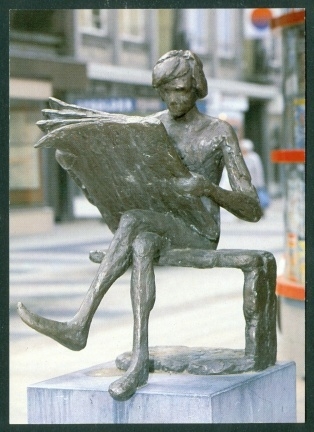
KULTUR / UMWELT / ZEITGEIST / SONSTIGES
Heimat bauen. Für eine menschliche Architektur
https://clauswolfschlag.wordpress.com/2018/05/11/heimat-b...
Trüby, Oswalt, Sauerbrei und Arch+ – eine weitere Antwort zur modernistischen Seilschaft
https://clauswolfschlag.wordpress.com/2018/05/11/trueby-o...
(Zur neuen Frankfurter Altstadt)
Alt statt neu - dem Wahren Schönen Guten! (JF-TV Dokumentation)
https://www.youtube.com/watch?v=lIlLF3yX5ak
Trier: Umstrittene Karl-Marx-Statue enthüllt
https://www.zeit.de/gesellschaft/zeitgeschehen/2018-05/tr...
(Dazu…)
Marx - antisemitisch, rassistisch und herzlos
http://www.achgut.com/artikel/marx_antisemitisch_rassisti...
Das Museum als volkspädagogische Anstalt
https://sezession.de/58618/das-museum-als-volkspaedagogis...
(Bundesdeutsche Medien-Realität)
Nach Interview mit AfD-Politiker
RT kritisiert MDR-Studioboykott
https://jungefreiheit.de/politik/ausland/2018/rt-kritisie...
(Bezahlter TV-Hofnarr)
EZ-finanzierter linker Hass und Bürgerverfolgung
Jan Böhmermann säubert das Internet von „Rechten“
http://www.pi-news.net/2018/05/jan-boehmermann-saeubert-d...
Kritik wird nicht geäußert
NDR: Hauen und Stechen um die Posten im Verwaltungsrat
https://jungefreiheit.de/kultur/medien/2018/ndr-hauen-und...
Facebook-Urteil
Ein Sieg für die Meinungsfreiheit
https://jungefreiheit.de/debatte/kommentar/2018/ein-sieg-...
Wikipedia unterschlägt bewusst Informationen
http://unser-mitteleuropa.com/2018/05/30/wikipedia-unters...
The Cleaners
Die Netzputzer von Manila
von Sebastian Hennig
https://jungefreiheit.de/kultur/2018/die-netzputzer-von-m...
Anne Will zum Bamf-Skandal
Viele gute Gäste und „Herr Gauland“
von Boris T. Kaiser
https://jungefreiheit.de/kultur/medien/2018/viele-gute-ga...
„Support Gay Marriage“
Homo-Kuchen abgelehnt: Bäcker landet vor oberstem Gericht
https://jungefreiheit.de/politik/ausland/2018/homo-kuchen...
Niederlande Cowboy- und Indianerspiel ist nicht strafbar
In den Niederlanden sind Ermittlungen gegen ein Veranstaltungszentrum eingestellt worden. Dieses hatte Kinder zu einem Cowboy- und Indianerfest eingeladen - und wurde deshalb wegen Rassismus angezeigt.
http://www.spiegel.de/panorama/gesellschaft/niederlande-c...
SPD-Initiative
Münchner Stadtrat entscheidet über gendergerechte Spielplätze
https://jungefreiheit.de/kultur/2018/muenchner-stadtrat-e...
(Unterstützer der #MeToo-Bewegung wird Opfer der eigenen Hysterie)
Nach Vorwürfen der Misshandlung
New Yorks Attorney General tritt zurück
Er soll seine Partnerinnen geschlagen, gewürgt und bedroht haben: Vier Frauen haben schwere Vorwürfe gegen den Generalstaatsanwalt für den Staat New York erhoben. Nun kündigt Eric Schneiderman seinen Rücktritt an.
http://www.spiegel.de/panorama/justiz/eric-schneiderman-n...
Protest gegen AfD-Politikerin Weidel
Bischof distanziert sich von Kopftuch-Pfarrer
https://jungefreiheit.de/politik/deutschland/2018/bischof...
Michael Ley/Martin Lichtmesz: Nationalmasochismus
https://sezession.de/58326/michael-ley-martin-lichtmesz-n...
Nachtgedanken (3): Anwendungsvorrang
Von Götz Kubitschek
https://sezession.de/58589/nachtgedanken-3-anwendungsvorr...
(Zum deutschen Stumpfsinn…)
Was für ein Hurensohn muß man eigentlich sein?
https://sezession.de/57440/was-fur-ein-hurensohn-muss-man...
(Vor allem scheint er sich über 100 AfD-"Neonazis" zu erregen… Beginnende Altersdebilität?)
Karl Lagerfeld "hasst" Angela Merkel - Kritik an Flüchtlingspolitik der Kanzlerin
https://www.gmx.net/magazine/politik/karl-lagerfeld-hasst...
("Wiener Festwochen" als Teil des pubertären Kunstbetriebs)
Souverän ist, wer die eigene Souveränität untergraben läßt
https://sezession.de/58550/souveraen-ist-wer-die-eigene-s...
Kapitaldelikte (5): Wirtschaft oder Politik?
https://sezession.de/58528/kapitaldelikte-5-wirtschaft-od...
Ramadan als Wehrübung
https://sezession.de/58523/ramadan-als-wehruebung
Fiume kommt wieder
Unzusammenhängende Gedanken am Rande, notiert von Raskolnikow.
Prolog: Als Martin Sellner in seinem Beitrag „Fiume kommt nicht wieder“ von „Raskolnikows Black Pill“ schrieb, mußte ich eine Internet-Suchmaschine bemühen, um zu erfahren, was er damit meinte. Scheinbar giebt es mehrere Pillen (rote, blaue, schwarze). Die Art des Unfugs, die sich mir bei dieser Suche entblätterte, bewog mich, eine kleine Entgegnung zu entbinden. Eine Entgegnung nicht nur auf Sellners Beitrag, sondern auch eine sehr allgemeine Skizze zur Großlage, wie sie sich mir darstellt.
https://sezession.de/58560/fiume-kommt-wieder
Universität Michigan
Studie: Klimawandel-Skeptiker handeln ökologischer
https://jungefreiheit.de/politik/ausland/2018/studie-klim...
Bundesverdienstkreuz für Campino? Antisemitismusbeauftragter fordert Ehrung für Echo-Rede
https://www.gmx.net/magazine/politik/bundesverdienstkreuz...
(Zu Campino und Co.)
Kulturbertrieb
Spätpubertäre Staatskünstler
von Thorsten Hinz
https://jungefreiheit.de/kultur/2018/spaetpubertaere-staa...
(Nun sind die des Antisemitismus verdächtigten Rapper zu wahren "Antifaschisten" geläutert…)
Nach „Echo“-Skandal
Rapper Farid Bang droht Alice Weidel mit Nasenbeinbruch
https://jungefreiheit.de/kultur/gesellschaft/2018/rapper-...
(Auch ein "Antifaschist")
Ein Wiederholungstäter
Das ist der Störer vom Eurovision Song Contest 2018
https://www.t-online.de/unterhaltung/eurovision-song-cont...
Interview mit Thor Kunkel zum neuen Oskar Roehler-Film
„Das war so schäbig“
https://jungefreiheit.de/kultur/2018/das-war-so-schaebig/
Minderheitenförderung
London will mehr Vielfalt im Fahrradverkehr
https://jungefreiheit.de/politik/ausland/2018/london-will...
Götz Aly über 1968
Verleugnete Konsequenzen
von Karlheinz Weißmann
https://jungefreiheit.de/debatte/kommentar/2018/verleugne...
- Mai 1945
„Eltern, Geschwister und Heimat: Ich hatte alles verloren“
von Manfred W. von Glehn
https://jungefreiheit.de/wissen/geschichte/2018/eltern-ge...
Dreißigjähriger Krieg
Unser großes Trauma
von Dieter Stein
https://jungefreiheit.de/debatte/streiflicht/2018/unser-g...
Svenja Flaßpöhler: Die potente Frau. Ein Debattenbeitrag
Von Ellen Kositza
https://sezession.de/58614/sneja-flasspoehler-die-potente...
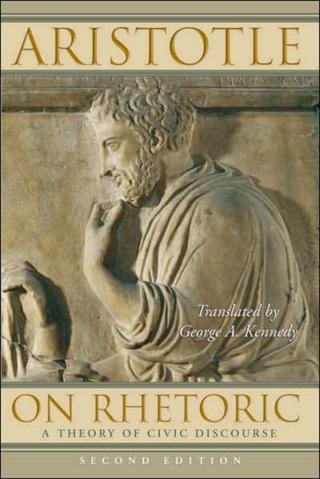 Above all, we must shed from within ourselves the idea that we, personally, are “entitled” to free speech or that the masses can welcome the whole truth. If we still have these notions, then we are in fact still slaves to our time’s democratic naïveté. No, free speech is at once a duty and a prize, to be exercised only once we have become worthy, by our own personal excellence and self-mastery. That was, at any rate, the way Diogenes the Cynic saw things, calling free speech “the finest thing of all in life.”[3] [4] But this free speech was not to be used carelessly: the Dog’s notoriously vicious wit and outrageous behavior were always meant to benefit others educationally, metaphorically biting his “friends, so as to save them.”[4] [5] Do not worry about your right to freedom of speech: try to be worthy of freedom of speech.
Above all, we must shed from within ourselves the idea that we, personally, are “entitled” to free speech or that the masses can welcome the whole truth. If we still have these notions, then we are in fact still slaves to our time’s democratic naïveté. No, free speech is at once a duty and a prize, to be exercised only once we have become worthy, by our own personal excellence and self-mastery. That was, at any rate, the way Diogenes the Cynic saw things, calling free speech “the finest thing of all in life.”[3] [4] But this free speech was not to be used carelessly: the Dog’s notoriously vicious wit and outrageous behavior were always meant to benefit others educationally, metaphorically biting his “friends, so as to save them.”[4] [5] Do not worry about your right to freedom of speech: try to be worthy of freedom of speech.


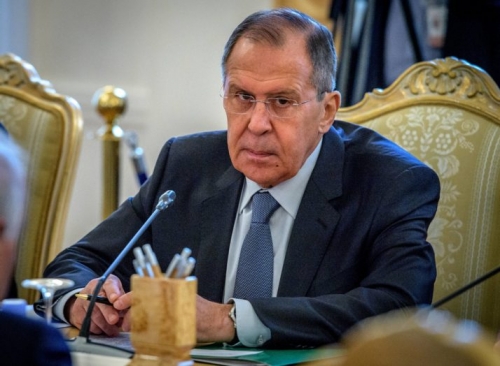

 del.icio.us
del.icio.us
 Digg
Digg






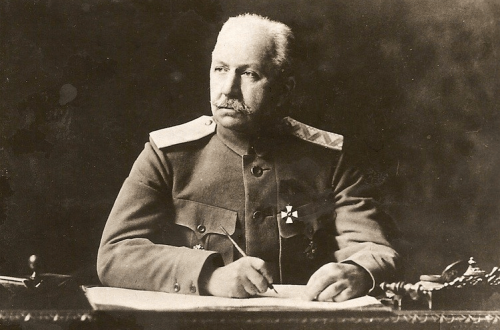
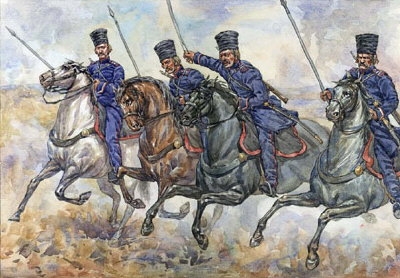
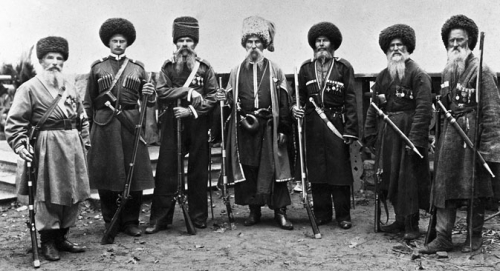
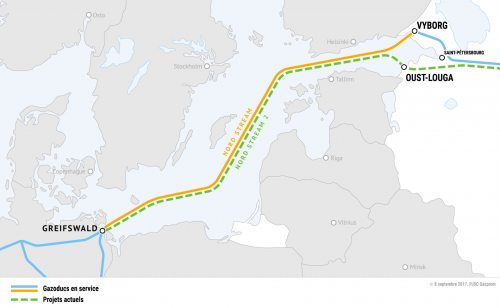

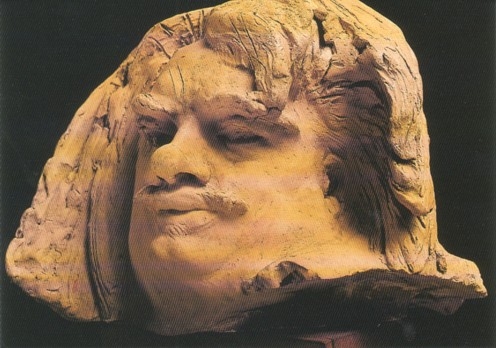
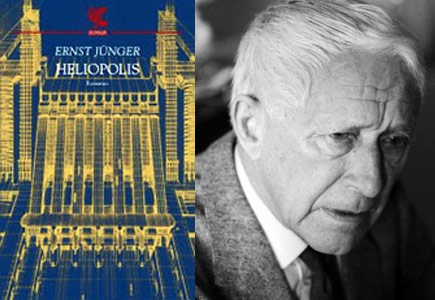





 Autre réflexion: si Céline est reconnu comme un écrivain important, il n’en demeure pas moins qu’il est tenu à l’écart par l’école et l’université. Hormis Voyage au bout de la nuit et, dans une moindre mesure Mort à crédit, ses romans sont absents des programmes scolaires. Quant à l’université, on doit bien constater qu’elle organise très peu de séminaires sur son œuvre et que, parmi les universitaires habilités à diriger des recherches, rares sont ceux qui acceptent de diriger un travail sur Céline. Conséquence : le nombre de thèses à lui consacrées est en nette baisse par rapport au siècle précédent. On se croirait revenu aux années où Frédéric Vitoux puis Henri Godard rencontrèrent tous deux des difficultés à trouver un directeur de thèse. Et cela ne risque pas de s’arranger dans les années à venir.
Autre réflexion: si Céline est reconnu comme un écrivain important, il n’en demeure pas moins qu’il est tenu à l’écart par l’école et l’université. Hormis Voyage au bout de la nuit et, dans une moindre mesure Mort à crédit, ses romans sont absents des programmes scolaires. Quant à l’université, on doit bien constater qu’elle organise très peu de séminaires sur son œuvre et que, parmi les universitaires habilités à diriger des recherches, rares sont ceux qui acceptent de diriger un travail sur Céline. Conséquence : le nombre de thèses à lui consacrées est en nette baisse par rapport au siècle précédent. On se croirait revenu aux années où Frédéric Vitoux puis Henri Godard rencontrèrent tous deux des difficultés à trouver un directeur de thèse. Et cela ne risque pas de s’arranger dans les années à venir.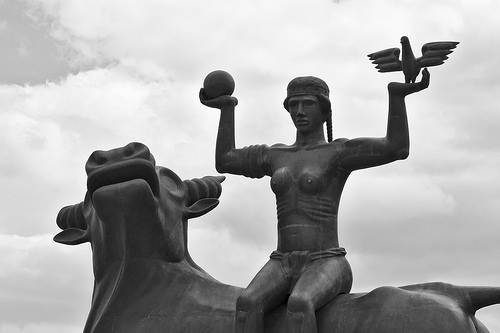
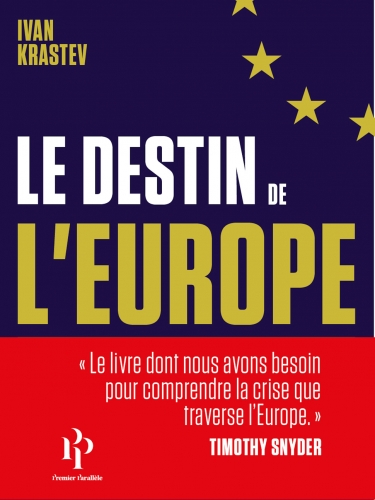 Peut-être y approfondira-t-il aussi son analyse de « géopolitique psychologique » qu’il émet au sujet des États-Unis ? « De nombreuses cartes électorales dessinées après la victoire de Trump aux dernières présidentielles américaines montrent très bien que, si les régions acquises à Trump correspondent à peu près à 85 % du territoire total des États-Unis, les régions acquises, elles, à Clinton représentent en gros 54 % de la population américaine. Si nous imaginons que ces régions constituent deux pays différents, nous notons immédiatement que le “ pays de Clinton ”, composé des régions côtières et d’îles urbaines, évoquent l’Angleterre du XIXe siècle; tandis que le “ pays de Trump ” ressemble quant à lui bien plus aux grandes étendues de l’Eurasie régentées par la Russie et l’Allemagne. Le combat politique qui a opposé Clinton et Trump fut un combat entre dimension maritime et dimension terrestre, entre des personnes pensant en termes d’espace et des personnes pensant en termes de lieux (pp. 49 – 50). » Subtile insinuation pour rapprocher Trump de la Russie de Vladimir Poutine…
Peut-être y approfondira-t-il aussi son analyse de « géopolitique psychologique » qu’il émet au sujet des États-Unis ? « De nombreuses cartes électorales dessinées après la victoire de Trump aux dernières présidentielles américaines montrent très bien que, si les régions acquises à Trump correspondent à peu près à 85 % du territoire total des États-Unis, les régions acquises, elles, à Clinton représentent en gros 54 % de la population américaine. Si nous imaginons que ces régions constituent deux pays différents, nous notons immédiatement que le “ pays de Clinton ”, composé des régions côtières et d’îles urbaines, évoquent l’Angleterre du XIXe siècle; tandis que le “ pays de Trump ” ressemble quant à lui bien plus aux grandes étendues de l’Eurasie régentées par la Russie et l’Allemagne. Le combat politique qui a opposé Clinton et Trump fut un combat entre dimension maritime et dimension terrestre, entre des personnes pensant en termes d’espace et des personnes pensant en termes de lieux (pp. 49 – 50). » Subtile insinuation pour rapprocher Trump de la Russie de Vladimir Poutine…
 La défiance des peuples d’Europe à l’égard des instances supranationales ne cesse de croître. En effet, « au lieu de redistribuer les produits de l’imposition, des classes fortunées vers les classes pauvres, les gouvernements européens maintiennent désormais leur santé financière précaire en empruntant au nom des générations futures sous la forme du financement par le crédit. Par conséquent, les populations ont perdu le pouvoir démocratique de réguler le marché à travers leur participation aux élections (p. 15) ». Ivan Krastev estime que « si l’Union devait s’effondrer, la logique de sa fragmentation serait celle d’un retrait massif de dépôts bancaires et non celle d’une révolution (p. 19) », d’où plusieurs mesures adoptées depuis une décennie par la Commission afin de déposséder légalement les détenteurs de compte bancaire à l’exemple de Chypre et de la Grèce. Une directive européenne prise en 2013 et effective depuis le 1er janvier 2016 stipule que les dépôts bancaires des particuliers et des entreprises s’élevant à plus de 100 000 € pourraient être mis autoritairement à contribution afin de renflouer les banques en faillite. Ce montant pourrait bien évidemment baisser pour mieux spolier l’ensemble de la population dont les plus fragiles. La saisie prochaine des biens immobiliers (et uniquement immobiliers), en particulier des retraités, des chômeurs et des travailleurs précaires, est programmée par les mafias bancaires liées à l’Oligarchie mondiale. L’emploi de plus en plus fréquent de la monnaie électronique en Occident, mais aussi en Inde et en Corée du Sud, prépare cette future expropriation insidieuse pour le seul profit des banksters et des marchés. Déjà, en novembre 2011, « la chute de Berlusconi […] symbolisa plutôt le triomphe sans équivoque du pouvoir des marchés financiers (p. 93) ». Dernièrement, le 29 mai 2018, le commissaire « européen » au Budget, l’Allemand Günther Oettinger, déclarait au sujet de l’entente gouvernementale conclue entre le Mouvement Cinq Étoiles et la Ligue que « les marchés vont apprendre aux Italiens à bien voter ». Il a ensuite démenti ses propos tout en maintenant le fond de sa pensée.
La défiance des peuples d’Europe à l’égard des instances supranationales ne cesse de croître. En effet, « au lieu de redistribuer les produits de l’imposition, des classes fortunées vers les classes pauvres, les gouvernements européens maintiennent désormais leur santé financière précaire en empruntant au nom des générations futures sous la forme du financement par le crédit. Par conséquent, les populations ont perdu le pouvoir démocratique de réguler le marché à travers leur participation aux élections (p. 15) ». Ivan Krastev estime que « si l’Union devait s’effondrer, la logique de sa fragmentation serait celle d’un retrait massif de dépôts bancaires et non celle d’une révolution (p. 19) », d’où plusieurs mesures adoptées depuis une décennie par la Commission afin de déposséder légalement les détenteurs de compte bancaire à l’exemple de Chypre et de la Grèce. Une directive européenne prise en 2013 et effective depuis le 1er janvier 2016 stipule que les dépôts bancaires des particuliers et des entreprises s’élevant à plus de 100 000 € pourraient être mis autoritairement à contribution afin de renflouer les banques en faillite. Ce montant pourrait bien évidemment baisser pour mieux spolier l’ensemble de la population dont les plus fragiles. La saisie prochaine des biens immobiliers (et uniquement immobiliers), en particulier des retraités, des chômeurs et des travailleurs précaires, est programmée par les mafias bancaires liées à l’Oligarchie mondiale. L’emploi de plus en plus fréquent de la monnaie électronique en Occident, mais aussi en Inde et en Corée du Sud, prépare cette future expropriation insidieuse pour le seul profit des banksters et des marchés. Déjà, en novembre 2011, « la chute de Berlusconi […] symbolisa plutôt le triomphe sans équivoque du pouvoir des marchés financiers (p. 93) ». Dernièrement, le 29 mai 2018, le commissaire « européen » au Budget, l’Allemand Günther Oettinger, déclarait au sujet de l’entente gouvernementale conclue entre le Mouvement Cinq Étoiles et la Ligue que « les marchés vont apprendre aux Italiens à bien voter ». Il a ensuite démenti ses propos tout en maintenant le fond de sa pensée.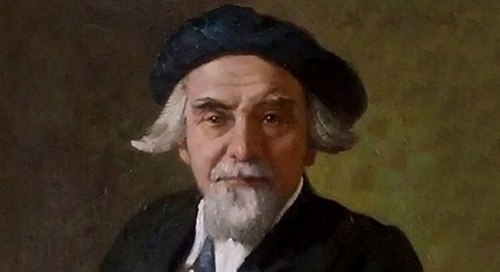
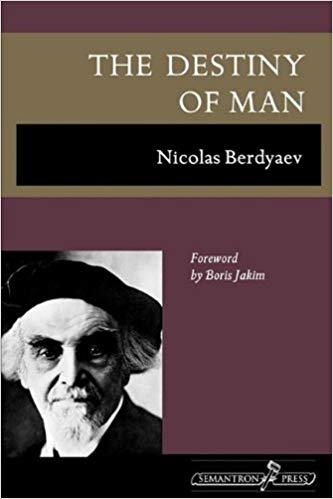 One might fairly assert that Berdyaev did himself little good publicity-wise by cultivating a style of presentation which, while often resolving its thought-processes in a brilliant, aphoristic utterance, nevertheless takes its time, looks at phenomena from every aspect, analyzes every proposition to its last comma and period, and tends to assert its findings bluntly rather than to argue them politely in the proper syllogistic manner. In Berdyaev’s defense, a sensitive reader might justifiably interpret his leisurely examination of the modern agony as a deliberate and quite appropriate response to the upheavals that harried him from the time of the 1905 Revolution to the German occupation of France during World War II. If the Twentieth Century insisted on being precipitate and eruptive in everything, without regard to the lethal mayhem it wreaked, then, by God, Berdyaev, regarding his agenda, would take his sweet time. Not for him the constant mobilized agitation, the sloganeering hysteria, the goose-stepping and dive-bombing spasms of modernity in full self-apocalypse. That is another characteristic of Berdyaev – he is all at once leisurely in style and apocalyptic in content. Berdyaev was quite as apocalyptic in his expository prose as his idol Fyodor Dostoevsky was in his ethical narrative, and being a voice of revelation he expressed himself, again like Dostoevsky, in profoundly religious and indelibly Christian terms. Berdyaev follows Dostoevsky and anticipates Alexander Solzhenitsyn in his conviction that no society can murder God, as Western secular society has gleefully done, and then go its insouciant way, without consequence.
One might fairly assert that Berdyaev did himself little good publicity-wise by cultivating a style of presentation which, while often resolving its thought-processes in a brilliant, aphoristic utterance, nevertheless takes its time, looks at phenomena from every aspect, analyzes every proposition to its last comma and period, and tends to assert its findings bluntly rather than to argue them politely in the proper syllogistic manner. In Berdyaev’s defense, a sensitive reader might justifiably interpret his leisurely examination of the modern agony as a deliberate and quite appropriate response to the upheavals that harried him from the time of the 1905 Revolution to the German occupation of France during World War II. If the Twentieth Century insisted on being precipitate and eruptive in everything, without regard to the lethal mayhem it wreaked, then, by God, Berdyaev, regarding his agenda, would take his sweet time. Not for him the constant mobilized agitation, the sloganeering hysteria, the goose-stepping and dive-bombing spasms of modernity in full self-apocalypse. That is another characteristic of Berdyaev – he is all at once leisurely in style and apocalyptic in content. Berdyaev was quite as apocalyptic in his expository prose as his idol Fyodor Dostoevsky was in his ethical narrative, and being a voice of revelation he expressed himself, again like Dostoevsky, in profoundly religious and indelibly Christian terms. Berdyaev follows Dostoevsky and anticipates Alexander Solzhenitsyn in his conviction that no society can murder God, as Western secular society has gleefully done, and then go its insouciant way, without consequence.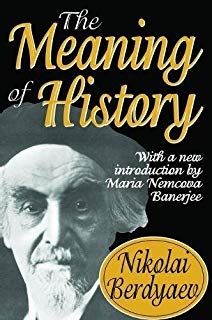 By the mid-1930s, in the extended aftermaths of World War I and the Bolshevik Revolution, and in the context of the ideological dictatorships, the conviction had impressed itself on Berdyaev that the existing Western arrangement, pathologically disordered, betokened the dissolution of civilization, not its continuance. In The Fate of Man in the Modern World, Berdyaev summarizes his discovery. In modernity, a brutal phase of history, the human collectivity must endure the effects of ancestral decisions, which subsequent generations might have altered but chose instead to endorse, and live miserably or perhaps die according to them. Modernity is thus history passing judgment on history, as Berdyaev sees it; and modernity’s brutality, its nastiness, and its inhumanity all stem from the same cause – the repudiation of God and the substitution in His place of a necessarily degraded “natural-social realm.” Berdyaev writes, “We are witnessing the socialization and nationalization of human souls, of man himself.” Some causes of this degeneracy lie proximate to their effects. “Modern bestialism and its attendant dehumanization are based upon idolatry, the worship of technics, race or class or production, and upon the adaptation of atavistic instincts to worship.” Again, “Dehumanization is… the mechanization of human life.” With mechanization comes also the “dissolution of man into… functions.”
By the mid-1930s, in the extended aftermaths of World War I and the Bolshevik Revolution, and in the context of the ideological dictatorships, the conviction had impressed itself on Berdyaev that the existing Western arrangement, pathologically disordered, betokened the dissolution of civilization, not its continuance. In The Fate of Man in the Modern World, Berdyaev summarizes his discovery. In modernity, a brutal phase of history, the human collectivity must endure the effects of ancestral decisions, which subsequent generations might have altered but chose instead to endorse, and live miserably or perhaps die according to them. Modernity is thus history passing judgment on history, as Berdyaev sees it; and modernity’s brutality, its nastiness, and its inhumanity all stem from the same cause – the repudiation of God and the substitution in His place of a necessarily degraded “natural-social realm.” Berdyaev writes, “We are witnessing the socialization and nationalization of human souls, of man himself.” Some causes of this degeneracy lie proximate to their effects. “Modern bestialism and its attendant dehumanization are based upon idolatry, the worship of technics, race or class or production, and upon the adaptation of atavistic instincts to worship.” Again, “Dehumanization is… the mechanization of human life.” With mechanization comes also the “dissolution of man into… functions.”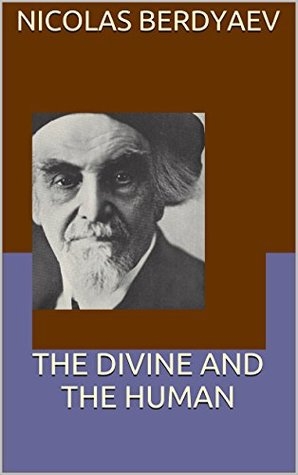 One of the pleasures of reading backwards into the dissentient discussion of modernity is the discovery of contrarian judgments, such as Berdyaev’s concerning the Florentine revival of classicism, that stand in refreshing variance with existing conformist opinion. Will Durant sums up the standing textbook view of the Renaissance in Volume 5 (1953) of his Story of Civilization. When “the humanists captured the mind of Italy,” as Durant writes, they “turned it from religion to philosophy, from heaven to earth, and revealed to an astonished generation the riches of pagan thought and art.” Having accomplished all that, according once again to Durant, the umanisti reorganized education on the premise that “the proper study of man was now to be man, in all the potential strength and beauty of his body, in all the joy and pain of his senses and feelings, [and] in all the frail majesty of his reason.” Durant’s tone implies something beyond mere description; it implies laudatory approval. Before turning back to Berdyaev, it is worth remarking how obviously wrongheaded Durant is in so few words. Insofar as the umanisti adopted Platonism – or rather late Neo-Platonism – they cannot exactly be said exclusively to have “turned” the general attention “from heaven to earth.” Rather, they refocused that attention from the transcendent God of the Bible and the Church Doctors to the celestial powers of Porphryian cosmology, the ones who might be manipulated by magical formulas to serve their earthly masters. Now in adopting Protagoras’ maxim that, man is the measure, the umanisti did, in fact, “terrestrialize” thinking. They achieved their end, however, only at the cost of swapping a cosmic-teleological perspective for an egocentric-instrumental one. It was an act of self-demotion. Had Berdyaev lived to read Durant’s Renaissance, he himself would inevitably have remarked these easy-to-spot misconceptions.
One of the pleasures of reading backwards into the dissentient discussion of modernity is the discovery of contrarian judgments, such as Berdyaev’s concerning the Florentine revival of classicism, that stand in refreshing variance with existing conformist opinion. Will Durant sums up the standing textbook view of the Renaissance in Volume 5 (1953) of his Story of Civilization. When “the humanists captured the mind of Italy,” as Durant writes, they “turned it from religion to philosophy, from heaven to earth, and revealed to an astonished generation the riches of pagan thought and art.” Having accomplished all that, according once again to Durant, the umanisti reorganized education on the premise that “the proper study of man was now to be man, in all the potential strength and beauty of his body, in all the joy and pain of his senses and feelings, [and] in all the frail majesty of his reason.” Durant’s tone implies something beyond mere description; it implies laudatory approval. Before turning back to Berdyaev, it is worth remarking how obviously wrongheaded Durant is in so few words. Insofar as the umanisti adopted Platonism – or rather late Neo-Platonism – they cannot exactly be said exclusively to have “turned” the general attention “from heaven to earth.” Rather, they refocused that attention from the transcendent God of the Bible and the Church Doctors to the celestial powers of Porphryian cosmology, the ones who might be manipulated by magical formulas to serve their earthly masters. Now in adopting Protagoras’ maxim that, man is the measure, the umanisti did, in fact, “terrestrialize” thinking. They achieved their end, however, only at the cost of swapping a cosmic-teleological perspective for an egocentric-instrumental one. It was an act of self-demotion. Had Berdyaev lived to read Durant’s Renaissance, he himself would inevitably have remarked these easy-to-spot misconceptions. In The Meaning of the Creative Act, Berdyaev takes Benvenuto Cellini – a much-romanticized figure, using the adjective “romanticized” in its populist connotation – for one signal specimen of the “Renaissance Man.” Berdyaev is fully aware that describing the Renaissance simply as a revival of paganism amounts to inexcusable naïvety. “The great Italian Renaissance,” he writes, “is vastly more complex than is usually thought.” Berdyaev sees the so-called rebirth of classical letters and art as a botched experiment in dialectics, during which “there occurred such a powerful clash between pagan and Christian elements in human nature as had never occurred before.” The tragedy of the Renaissance consists in the fact, as Berdyaev insists, that, “the Christian transcendental sense of being had so profoundly possessed men’s nature that the integral and final confession of the immanent ideals of life became impossible.” Cellini embodies the conflict. In his life, no matter how declaredly “pagan,” “there is still too much of Christianity.” Cellini could never have been “an integral man,” as his moral degeneracy and spasmodic repentance attested. In Berdyaev’s argument, Christianity has effectuated, however imperfectly, a theurgic alteration in being towards a higher level. Cellini’s life illustrates the point. The attempt to return to being at a lower level must fail, as it failed for Cellini; it can bring only suffering to the subject and in the milieu that attempts it.
In The Meaning of the Creative Act, Berdyaev takes Benvenuto Cellini – a much-romanticized figure, using the adjective “romanticized” in its populist connotation – for one signal specimen of the “Renaissance Man.” Berdyaev is fully aware that describing the Renaissance simply as a revival of paganism amounts to inexcusable naïvety. “The great Italian Renaissance,” he writes, “is vastly more complex than is usually thought.” Berdyaev sees the so-called rebirth of classical letters and art as a botched experiment in dialectics, during which “there occurred such a powerful clash between pagan and Christian elements in human nature as had never occurred before.” The tragedy of the Renaissance consists in the fact, as Berdyaev insists, that, “the Christian transcendental sense of being had so profoundly possessed men’s nature that the integral and final confession of the immanent ideals of life became impossible.” Cellini embodies the conflict. In his life, no matter how declaredly “pagan,” “there is still too much of Christianity.” Cellini could never have been “an integral man,” as his moral degeneracy and spasmodic repentance attested. In Berdyaev’s argument, Christianity has effectuated, however imperfectly, a theurgic alteration in being towards a higher level. Cellini’s life illustrates the point. The attempt to return to being at a lower level must fail, as it failed for Cellini; it can bring only suffering to the subject and in the milieu that attempts it.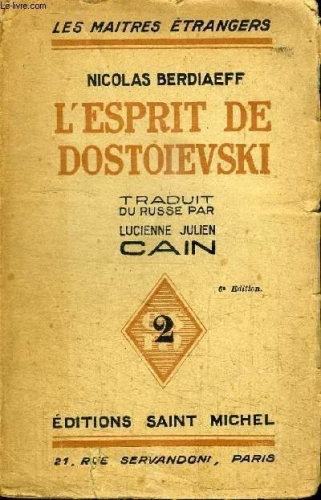 Berdyaev emphasizes the drastic diremption of the Quattrocento by reminding his readers of the earliest, purely Christian phase of the Renaissance. “It was in mystic Italy, in Joachim de Floris, that the prophetic hope of a new world-epoch of Christianity was born, an epoch of love, and epoch of spirit.” The pre-perspective painters also loom large in Berdyaev’s appreciation: “Giotto and all the early religious painting of Italy, Arnolfi and others, followed St. Francis and Dante.” Where Raphael and Leonardo, as Berdyaev intimates, worked in a realm of literalism – copying from nature in a mechanical way – these earlier figures exercised their genius on the level of “symbolism.” In Berdyaev’s view, “mystic Italy” prefigures late-Nineteenth Century Symbolism, a movement that he found rich in meaning and hopeful in implication. Joachim, Dante, and St. Francis all violated what Berdyaev calls “the bounds of the average, ordered, canonic way”; their “revolt” precludes “any sort of compromise with the bourgeois spirit,” as did the later revolt of Charles Baudelaire, Henrik Ibsen, and Joris-Karl Huysmans. Whether it is Giotto or Baudelaire, the theurgic impulse aims, not to “create culture,” but to create “new being.”
Berdyaev emphasizes the drastic diremption of the Quattrocento by reminding his readers of the earliest, purely Christian phase of the Renaissance. “It was in mystic Italy, in Joachim de Floris, that the prophetic hope of a new world-epoch of Christianity was born, an epoch of love, and epoch of spirit.” The pre-perspective painters also loom large in Berdyaev’s appreciation: “Giotto and all the early religious painting of Italy, Arnolfi and others, followed St. Francis and Dante.” Where Raphael and Leonardo, as Berdyaev intimates, worked in a realm of literalism – copying from nature in a mechanical way – these earlier figures exercised their genius on the level of “symbolism.” In Berdyaev’s view, “mystic Italy” prefigures late-Nineteenth Century Symbolism, a movement that he found rich in meaning and hopeful in implication. Joachim, Dante, and St. Francis all violated what Berdyaev calls “the bounds of the average, ordered, canonic way”; their “revolt” precludes “any sort of compromise with the bourgeois spirit,” as did the later revolt of Charles Baudelaire, Henrik Ibsen, and Joris-Karl Huysmans. Whether it is Giotto or Baudelaire, the theurgic impulse aims, not to “create culture,” but to create “new being.”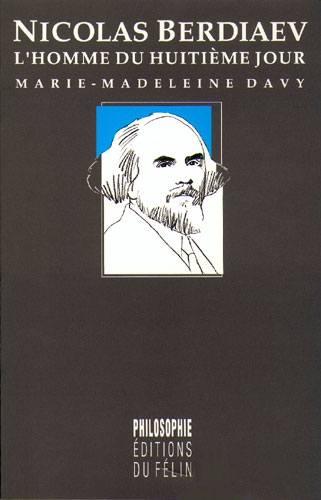 Caliban and emergent mechanical mastery taken together might well form an image to make one skip a breath. For once the “ebullience” of liberation-from-religion neutralizes “spiritual authority” and stimulates the “differentiation,” natural man, ego-driven and undisciplined, is bound to end up in possession of the Neo-Atlantean instrumentality, whereupon the prospect opens out on no end of mischief. Berdyaev’s historical diagnosis indeed runs in this direction. He even formulates the law of what he calls “the strange paradox”: “Man’s self-affirmation leads to his perdition; the free play of human forces unconnected with any higher aim brings about the exhaustion of man’s creative powers.” The Protestant Reformation of the German North and the so-called Enlightenment of the Eighteenth Century in France and the German states represent, in Berdyaev’s scheme, ever-lower stages of this descent into dissolution rather than the steps-upward of the ready version of Progress. The paradox of humanism consists in its having “affirmed man’s self-confidence” while also having “debased [man] by ceasing to regard him as a being of a higher and divine origin.”
Caliban and emergent mechanical mastery taken together might well form an image to make one skip a breath. For once the “ebullience” of liberation-from-religion neutralizes “spiritual authority” and stimulates the “differentiation,” natural man, ego-driven and undisciplined, is bound to end up in possession of the Neo-Atlantean instrumentality, whereupon the prospect opens out on no end of mischief. Berdyaev’s historical diagnosis indeed runs in this direction. He even formulates the law of what he calls “the strange paradox”: “Man’s self-affirmation leads to his perdition; the free play of human forces unconnected with any higher aim brings about the exhaustion of man’s creative powers.” The Protestant Reformation of the German North and the so-called Enlightenment of the Eighteenth Century in France and the German states represent, in Berdyaev’s scheme, ever-lower stages of this descent into dissolution rather than the steps-upward of the ready version of Progress. The paradox of humanism consists in its having “affirmed man’s self-confidence” while also having “debased [man] by ceasing to regard him as a being of a higher and divine origin.” Berdyaev certainly never stood alone in his diagnosis of modern despiritualization. Similar if not identical insights occur under the scrutiny not only of the other writers mentioned at the outset (from Blixen to Undset) but more recently in the work of Jacques Barzun (especially in his great late-career book, From Dawn to Decadence), Roberto Calasso, Jacques Ellul, René Girard, Paul Gottfried, Kenneth Minogue, Roger Scruton, and Eric Voegelin, to name but a few more or less at random. Yet however many names one crowds together in a sentence, the shared judgment remains in the minority and under exclusion. In the prevailing liberal-progressive view, the world is monistic and one-dimensional: Everything is race, class, gender, or the state. In Berdyaev’s dissenting view, the world is dualistic and three-dimensional: “Christianity reveals and confirms man’s belonging to two planes of being, to the spiritual and to the natural-social, to the Kingdom of God and the Kingdom of Caesar.” It is the first dimension – actually a double dimension – of height and depth that guarantees freedom in the second dimension. The denial of the realm of height and depth is therefore the essence, a totally negative essence, of the Kingdom of Caesar intransigent. Berdyaev values man over society because he values spirit over matter,” the sole concern of men on the “natural-social” plane. The existing society indeed values matter exclusively, to the extent of having fixated itself on the finished product – the latest cell phone or handheld electronic game-player or that contradiction-in-the-adjective, the smart car – while deputizing foreign nations to produce these things. This same society, a kind of super cargo-cult, deracinated, demoralized, despiritualized, badly educated, deluged in pornography and ideology, and as conformist as any primitive tribe, vigorously denies the spirit, where not explicitly as articulate theory then in behavior.
Berdyaev certainly never stood alone in his diagnosis of modern despiritualization. Similar if not identical insights occur under the scrutiny not only of the other writers mentioned at the outset (from Blixen to Undset) but more recently in the work of Jacques Barzun (especially in his great late-career book, From Dawn to Decadence), Roberto Calasso, Jacques Ellul, René Girard, Paul Gottfried, Kenneth Minogue, Roger Scruton, and Eric Voegelin, to name but a few more or less at random. Yet however many names one crowds together in a sentence, the shared judgment remains in the minority and under exclusion. In the prevailing liberal-progressive view, the world is monistic and one-dimensional: Everything is race, class, gender, or the state. In Berdyaev’s dissenting view, the world is dualistic and three-dimensional: “Christianity reveals and confirms man’s belonging to two planes of being, to the spiritual and to the natural-social, to the Kingdom of God and the Kingdom of Caesar.” It is the first dimension – actually a double dimension – of height and depth that guarantees freedom in the second dimension. The denial of the realm of height and depth is therefore the essence, a totally negative essence, of the Kingdom of Caesar intransigent. Berdyaev values man over society because he values spirit over matter,” the sole concern of men on the “natural-social” plane. The existing society indeed values matter exclusively, to the extent of having fixated itself on the finished product – the latest cell phone or handheld electronic game-player or that contradiction-in-the-adjective, the smart car – while deputizing foreign nations to produce these things. This same society, a kind of super cargo-cult, deracinated, demoralized, despiritualized, badly educated, deluged in pornography and ideology, and as conformist as any primitive tribe, vigorously denies the spirit, where not explicitly as articulate theory then in behavior.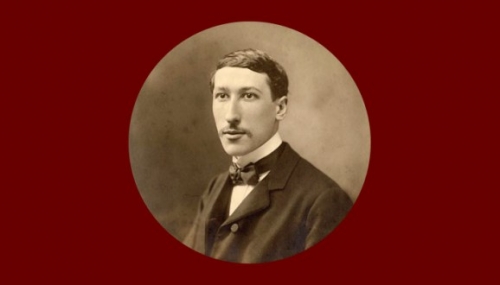
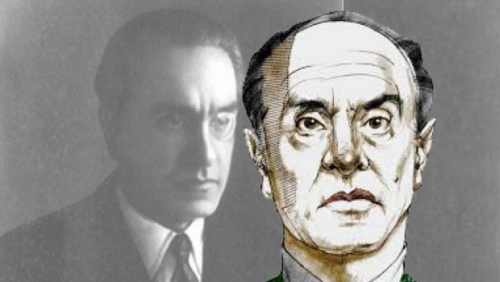



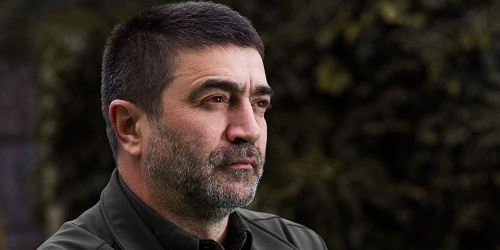
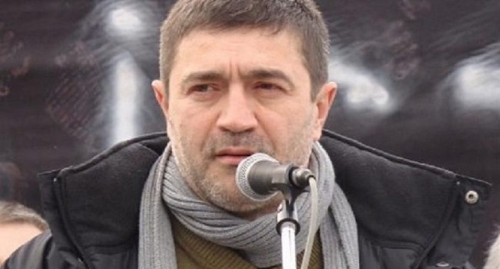
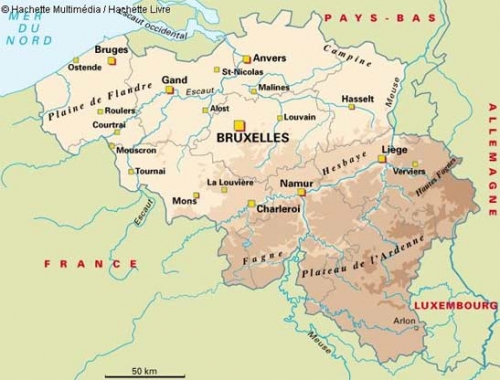
 Le travail du Prof. David Criekemans
Le travail du Prof. David Criekemans Tropisme anglo-saxon et spaakisme atlantiste
Tropisme anglo-saxon et spaakisme atlantiste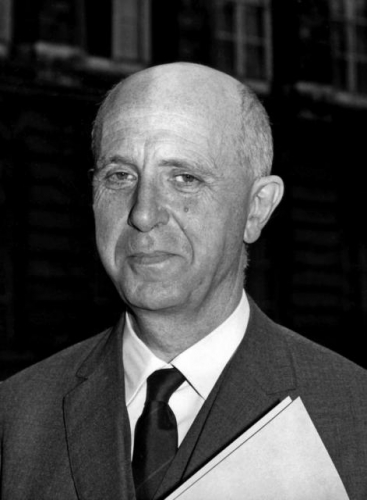 Cependant, le projet d’« Europe totale » du catholique Pierre Harmel, admiré par le socialiste alternatif Coolsaet, n’est possible que si tous les pays européens, à l’unisson, décidait, en un espace-temps très court, de suivre le même ordre du jour. Dans le contexte actuel, c’est évidemment impossible, l’idéal d’un Axe Paris-Berlin-Moscou, explicité en son temps par Henri de Grossouvre, n’ayant été qu’éphémère. Les dirigeants post-gaulliens que sont Sarközy, Hollande et Macron ne peuvent imaginer enclencher une audace innovante qui adhèrerait spontanément et très rapidement à l’idée harmélienne d’« Europe totale » (et à celle, tout aussi totale, d’un Jean Thiriart…). Cette absence de réalisme politique, métapolitique et géopolitique interdit de sortir de ce qu’il faut bien appeler une impasse, à l’heure où Washington appelle à une guerre contre la Russie de Poutine, à refouler toute présence chinoise en Mer de Chine du Sud et à un boycott général contre l’Iran, excellent client des industries européennes. Une impasse où nous ne pourrons connaître rien d’autre que le marasme et le déclin.
Cependant, le projet d’« Europe totale » du catholique Pierre Harmel, admiré par le socialiste alternatif Coolsaet, n’est possible que si tous les pays européens, à l’unisson, décidait, en un espace-temps très court, de suivre le même ordre du jour. Dans le contexte actuel, c’est évidemment impossible, l’idéal d’un Axe Paris-Berlin-Moscou, explicité en son temps par Henri de Grossouvre, n’ayant été qu’éphémère. Les dirigeants post-gaulliens que sont Sarközy, Hollande et Macron ne peuvent imaginer enclencher une audace innovante qui adhèrerait spontanément et très rapidement à l’idée harmélienne d’« Europe totale » (et à celle, tout aussi totale, d’un Jean Thiriart…). Cette absence de réalisme politique, métapolitique et géopolitique interdit de sortir de ce qu’il faut bien appeler une impasse, à l’heure où Washington appelle à une guerre contre la Russie de Poutine, à refouler toute présence chinoise en Mer de Chine du Sud et à un boycott général contre l’Iran, excellent client des industries européennes. Une impasse où nous ne pourrons connaître rien d’autre que le marasme et le déclin.  Matière bourguignonne
Matière bourguignonne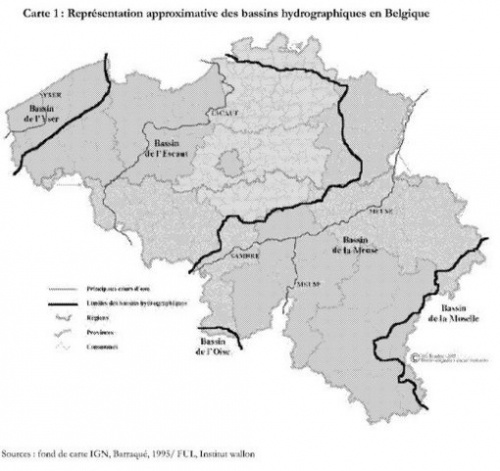
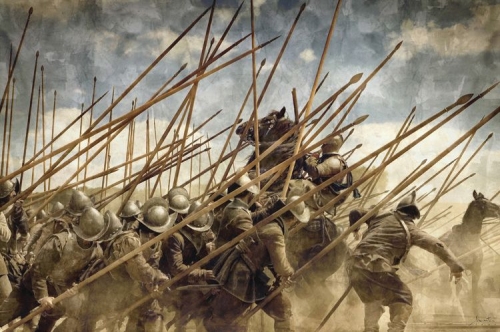

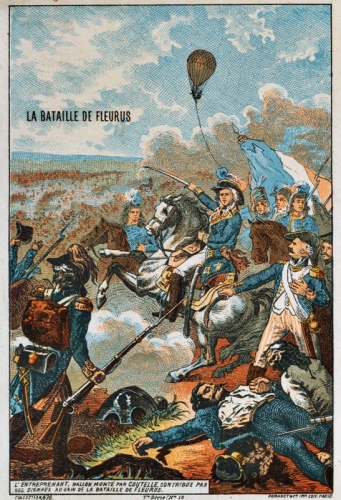 Fleurus, 1794
Fleurus, 1794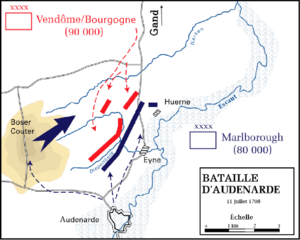 L’Escaut, curieusement, n’a guère été, sur ses rives et dans les environs immédiats de son cours, le théâtre de batailles aussi mémorables que celles de Rocroi, Fleurus ou Ligny, à l’exception peut-être de celle d’Audenarde (Oudenaarde), convoitée par les Français à plusieurs reprises au 17ième siècle, sous Louis XIV. En 1708, la coalition regroupant Autrichiens, Impériaux et Anglais, sous la conduite du Prince Eugène de Savoie-Carignan, du Duc de Marlborough (le «Malbrouck » de la chanson) et d’Henri de Nassau battent les troupes du Duc de Vendôme qui avaient fait de cette place flamande un redoutable bastion français.
L’Escaut, curieusement, n’a guère été, sur ses rives et dans les environs immédiats de son cours, le théâtre de batailles aussi mémorables que celles de Rocroi, Fleurus ou Ligny, à l’exception peut-être de celle d’Audenarde (Oudenaarde), convoitée par les Français à plusieurs reprises au 17ième siècle, sous Louis XIV. En 1708, la coalition regroupant Autrichiens, Impériaux et Anglais, sous la conduite du Prince Eugène de Savoie-Carignan, du Duc de Marlborough (le «Malbrouck » de la chanson) et d’Henri de Nassau battent les troupes du Duc de Vendôme qui avaient fait de cette place flamande un redoutable bastion français. 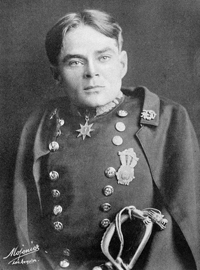 Enfin, pour trouver des positions géopolitiques et géostratégiques directement liées à l’espace aujourd’hui belge, nous devons nous référer à un ouvrage absolument fondamental, toujours exploité par les puissances thalassocratiques anglo-saxonnes de nos jours : celui d’Homer Lea, intitulé The Day of the Saxons. Cet ouvrage de 1912, réédité immédiatement après l’entrée des troupes soviétiques en Afghanistan en 1979 et pourvu d’une remarquable préface du stratégiste suisse Jean-Jacques Langendorf, explique, à la suite de Halford John Mackinder, comment sécuriser les « rimlands » persan et indien contre les poussées russes dans le cadre du fameux « Great Game ». C’est là l’essentiel du livre mais rien n’a pris une ride : Lea préconise une politique de fermeté extrême voire prévoit un casus belli si l’influence russe dépasse la ligne Téhéran-Kaboul. En 1979, Brejnev a franchi délibérément cette ligne. La guerre afghane et toutes les guerres connexes dans l’espace entre Méditerranée et Indus sont le résultat d’un refus américain et britannique de voir s’étendre une influence russe ou soviétique au-delà de la ligne Téhéran-Kaboul.
Enfin, pour trouver des positions géopolitiques et géostratégiques directement liées à l’espace aujourd’hui belge, nous devons nous référer à un ouvrage absolument fondamental, toujours exploité par les puissances thalassocratiques anglo-saxonnes de nos jours : celui d’Homer Lea, intitulé The Day of the Saxons. Cet ouvrage de 1912, réédité immédiatement après l’entrée des troupes soviétiques en Afghanistan en 1979 et pourvu d’une remarquable préface du stratégiste suisse Jean-Jacques Langendorf, explique, à la suite de Halford John Mackinder, comment sécuriser les « rimlands » persan et indien contre les poussées russes dans le cadre du fameux « Great Game ». C’est là l’essentiel du livre mais rien n’a pris une ride : Lea préconise une politique de fermeté extrême voire prévoit un casus belli si l’influence russe dépasse la ligne Téhéran-Kaboul. En 1979, Brejnev a franchi délibérément cette ligne. La guerre afghane et toutes les guerres connexes dans l’espace entre Méditerranée et Indus sont le résultat d’un refus américain et britannique de voir s’étendre une influence russe ou soviétique au-delà de la ligne Téhéran-Kaboul. 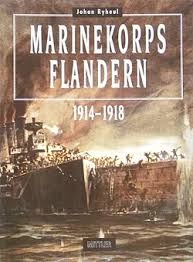 Pour les Allemands, l’espace scaldien et la zone transmosane sont donc des tremplins pour arriver à Paris. Comme le firent les Francs à l’aurore de l’histoire de France. L’histoire prouve toutefois que l’espace change de qualité et de dimensions entre l’ancienne frontière méridionale des Pays-Bas espagnols et le bassin parisien. L’espace s’y étire, l’habitat s’y raréfie, rendant la logistique plus compliquée voire ingérable avec un charroi précaire et exclusivement hippomobile. Les armées de Philippe II d’Espagne, commandées par le Comte d’Egmont et par Emmanuel-Philibert de Savoie, ne dépasseront pas Saint-Quentin malgré leur belle victoire. Les lansquenets de Götz von Berlichingen s’arrêteront à Saint-Dizier en Haute-Marne. En 1914, les troupes du Kaiser arriveront jusqu’à la Marne mais ne pourront pousser plus loin.
Pour les Allemands, l’espace scaldien et la zone transmosane sont donc des tremplins pour arriver à Paris. Comme le firent les Francs à l’aurore de l’histoire de France. L’histoire prouve toutefois que l’espace change de qualité et de dimensions entre l’ancienne frontière méridionale des Pays-Bas espagnols et le bassin parisien. L’espace s’y étire, l’habitat s’y raréfie, rendant la logistique plus compliquée voire ingérable avec un charroi précaire et exclusivement hippomobile. Les armées de Philippe II d’Espagne, commandées par le Comte d’Egmont et par Emmanuel-Philibert de Savoie, ne dépasseront pas Saint-Quentin malgré leur belle victoire. Les lansquenets de Götz von Berlichingen s’arrêteront à Saint-Dizier en Haute-Marne. En 1914, les troupes du Kaiser arriveront jusqu’à la Marne mais ne pourront pousser plus loin. 




